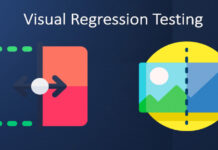Many people are eagerly anticipating the day the FDA approves cannabidiol (CBD) as a food additive. CBD is a cannabinoid derived from hemp, but unlike marijuana, it’s not psychoactive. Although it provides many of the same therapeutic benefits as THC, you can’t get high from CBD.
People consume cannabidiol in a variety of ways, including smoking, vaping, capsules, tinctures, suppositories, and food. While ingesting or smoking cannabidiol provides a whole-body effect, using CBD suppositories creates more of a localized effect.
According to the research firm BDSA, the CBD market is set to reach $20.5 billion by 2025, but that projection hinges on FDA approval. Right now, CBD is generally legal thanks to the 2018 Farm Bill. However, there are some gray areas that would disappear when CBD is finally FDA-approved.
Why the CBD market is so hot
If you’ve used CBD, you probably understand why the market is hot. If you don’t have personal experience with CBD, it might seem overhyped. While some manufacturers do hype their products, the benefits of cannabidiol are genuine.
Science backs the therapeutic benefits of CBD
Although studies are limited, cannabidiol has been shown to calm the central nervous system and provide relief for neuropsychiatric disorders like epilepsy, schizophrenia, ADHD, and anxiety. CBD also helps with sleep disorders by improving sleep quality, which positively impacts a person’s overall health.
Although many retail stores carry it, the majority of CBD is purchased through dispensaries and online sales come in second. There is also a prescription form of cannabidiol called Epidiolex. This pharmaceutical is available by prescription only. Epidiolex is the only FDA-approved form of cannabidiol and is provided almost exclusively to epilepsy patients.
FDA approval for CBD will revolutionize medical care
Not having the FDA’s stamp of approval in its natural form prevents some people from accessing the relief they need. Unfortunately, when patients are hospitalized, they no longer have free access to CBD in any form but a prescription.
Since patients in the hospital can only use FDA-approved drugs, they are dependent on Epidiolex. When a patient doesn’t have a qualifying diagnosis, they can’t get the drug, which means they can’t continue using CBD for anxiety, stress, or sleep problems. Many people have state-issued medical marijuana cards, but unfortunately, medical marijuana cards aren’t honored when you’re in the hospital.
Approving CBD for use in its natural form would revolutionize medical care in the United States. Although CBD isn’t a drug used to treat any disease, it has the potential to treat a variety of ailments and provide major relief to patients.
What will it take to legalize CBD as a medicine?
Cannabidiol would need to go through more testing, including rigorous clinical trials, in order to be considered for FDA approval. It seems impossible, but it’s not entirely far-fetched. For instance, industrial hemp was outlawed in 1937 under the Marihuana Tax Act and was recently legalized in 2018 under the amended Farm Bill.
Legalizing industrial hemp didn’t legalize marijuana. However, marijuana only remains illegal because it has psychoactive properties. CBD has a much better chance at being fully legalized than marijuana. The biggest obstacle seems to be the drug companies’ need to control profits.
It doesn’t make sense to create a synthetic version of CBD and legalize that for medicinal use, while keeping the original, natural substance off-limits to patients. Pharmaceutical companies are for-profit companies, so unless they find a way to profit from natural cannabidiol on a large scale, it might be a while before it becomes federally legal.
How the CBD market will grow
When given the green light by the FDA, the CBD market will take off rapidly. People will start businesses they were afraid to start before, and there will be an influx of healthy competition to keep prices reasonable.
Once more businesses enter the market, CBD will likely be found in every drug store and most retail outlets in the vitamin and supplement section. Once fully approved for all uses, including medicinal, CBD will be extremely easy to obtain.
2025 is still several years away
There’s still time for CBD to be approved by the FDA to meet the BDA’s $20.5 billion market projection. It’s hard to say when things will shift. For now, the market is there, and the ball is in the FDA’s court.


























